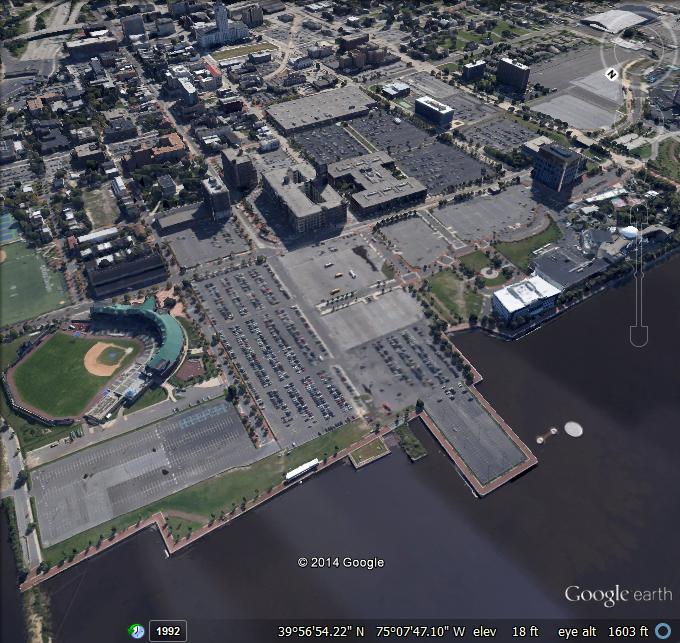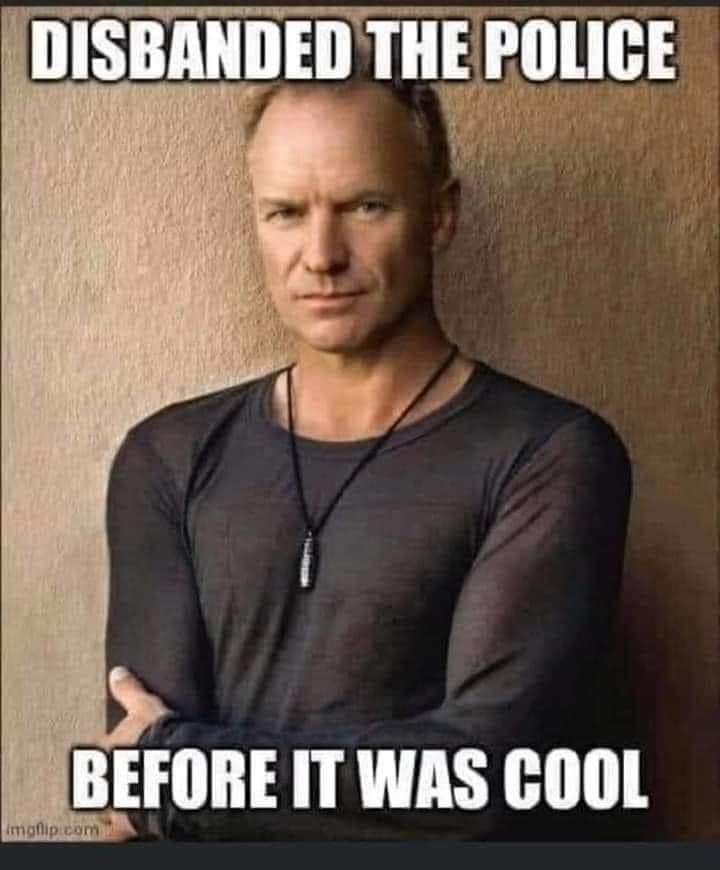 well-temperedforum.groupee.net
well-temperedforum.groupee.net  The Well-Tempered Forum
The Well-Tempered Forum  Off Key
Off Key  How Camden replaced their police department
How Camden replaced their police departmentGo  | New  | Find  | Notify  | Tools  | Reply  |  |
| Has Achieved Nirvana |
Cindy mentioned Camden firing their entire police and hiring back selectively in another thread. I was very curious about that, wondering how they were able to get it past the Union. They City of Camden actually permanently disbanded the police department and Camden County formed a brand new one. So yeah, I guess if one party to the union contract straight up disappears, you can get out of the contract... Interestingly, they dropped the average pay and benefits package by almost half when they did it. Some details here. https://www.governing.com/topi...-new-department.html
| ||
|
Minor Deity |
I moved to Camden just after the county took over the police department and about six months before this article was written. I did a lot of reading at the time about the city's troubles, eventually writing a piece for The Atlantic about its history. I didn't, and still don't, feel like I know enough about the police situation to say much. I can say that everything I read indicated that the crime situation improved throughout the time I was there (2013-2015). I volunteered at a middle school after care program as part of one of my courses and saw the police setting up an after-school festival for the kids and their families, which I guess was part of their neighborhood policing effort. I taught a unit in my composition class on media coverage of Camden. One of the reading assignments was this piece this piece for Rolling Stone by Matt Taibbi. We talked a lot about how framing a story changes it. By choosing photos of boarded-up buildings instead of showing even one photo of the campus or the waterfront, he framed a hair-raising narrative that was true but not the whole truth. It seems that Taibbi was unable to find anybody to interview without a gunshot wound scar or a prison tattoo on their face. I was so pissed off by his comment about the streets smelling like sewers that I wrote another piece for The Atlantic on the faulty sewer systems in America's big cities. (Has he never walked down the streets of New York after a big rain? I'll answer that. He has. He went to NYU.) Anyway, I have concerns about the invasiveness of Camden's ubiquitous cameras and microphones, and I had a black student in that class tell me how many times the police had pulled him over, but the city's crime numbers have improved to the point that Philadelphia parents started bringing their kids across the river to play Little League in Camden. So...pros and cons. If there are fewer middle school kids writing essays about the drug dealer who works outside their front door, I'm gonna call the new police department at least a partial win.
| |||
|
Minor Deity |
While I'm reminiscing about researching Camden... I had a lot of fun researching those two Atlantic pieces, including a trip to the Camden County Historical Society's archive to view one of a handful of surviving copies of a biography of the man who founded Victor Talking Machines, which put professional entertainment into people's homes and eventually became RCA. It's hard to overstate the impact of the gramophone, which leads in a fairly straight line to the internet and modern media. I sold that article by comparing early twentieth-century Camden to Silicon Valley. That piece was picked up by sites and think tanks like CityLab and the Urban League. I was really surprised at the kind of impact an internet-only article can have. (And that speaks to the point of the piece. The gramophone became the radio became the TV became online media, and now I can sit in my comfy chair and research a century of urban history, complete with eighty-year-old aerial photos, except for the occasional self-published biography of a media giant that I have to schlep to the historical society to see.) The bigger surprise, though, was the fallout from the piece on big city sewers. It, too, was picked up by think tanks and environmental advocacy groups, but I was not prepared for my little piece for the commercial media to be noticed by academia. It was published in 2015, but it's been cited by The Yale Law Journal and Columbia Human Rights Law Review within the past year or so. It's the little article that will not die.
| |||
|
Minor Deity |
Just for fun, here's Camden in 1930 and circa 2015 via Google Earth, because Victor Talking Machines became RCA became the internet and I can just casually dial these things up on my computer and then post them for you:  
| |||
|
| Has Achieved Nirvana |
I remember that piece well, MA. Glad it got extra mileage beyond the Atlantic.
| |||
|
| Has Achieved Nirvana |
Interesting counter intuitive detail. People usually say hiring cops from the community being policed helps with relations. Camden did the opposite. The city force came 100% from the city. The new county police drew substantially from the suburbs, but polices exclusively in the city.
| |||
|
| Has Achieved Nirvana |
I see Minneapolis is considering the same strategy.
| |||
|
| Minor Deity |
https://www.washingtonpost.com...4296735e5_story.html Op-ed by Camden!s Police Chief on disbanding and then rebuilding the entire police force.
| |||
|
| Has Achieved Nirvana |

| |||
|
Has Achieved Nirvana |
| |||
|
Has Achieved Nirvana |
The police didn't always exist in the US. You can research the history. It starts around 1850 during the Industrial Revolution. | |||
|
| Powered by Social Strata |
| Please Wait. Your request is being processed... |
|
 well-temperedforum.groupee.net
well-temperedforum.groupee.net  The Well-Tempered Forum
The Well-Tempered Forum  Off Key
Off Key  How Camden replaced their police department
How Camden replaced their police department